February 21, 2017
7 Books Every Scrum Master Should Read
If you had a way to access the wisdom of highly experienced business professionals and consultants for a few dollars, would you take the opportunity? They best way would be to read some scrum books!
In a nut shell, that’s the benefit of reading good books. Unlike attending courses, books are affordable and can be read on your schedule. Use these books to enhance your understanding of both scrum and business fundamentals.
You may encounter books you’ve seen before or perhaps read once. In that case, ask yourself whether or not you’ve applied everything you’ve learned from the book. If not, perhaps it’s time to read the book again and extract more from it. Samuel Johnson put it this way: “People need to be reminded more often than they need to be instructed.” The best business books like “Getting Things Done” by David Allen yield new insights with each reading.
1. Agile Retrospectives: Making Good Teams Great by Esther Derby, Diana Larsen and Ken Schwaber
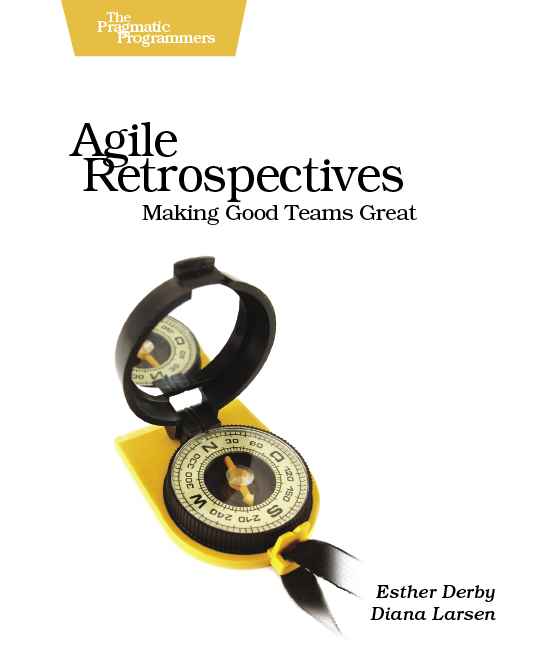
The retrospective is a fundamental agile practice that many Scrum Masters will be familiar with. This book explains how to run these meetings effectively. After all, if you attempt to obtain lessons learned and related insights without a good structure, you will end up with frustrating results and yelling matches. This is a must read book if your team has recently struggled with major challenges. On the positive side, retrospectives are also an excellent way to demonstrate constructive engagement with your client or project sponsor.
Key Insight: To prevent group think behavior, explain the meeting process in advance and ask every attendee to write down a personal lesson learned or observation on a notecard before the discussion starts.
2. The Scrum Field Guide: Practical Advice for Your First Year by Mitch Lacey
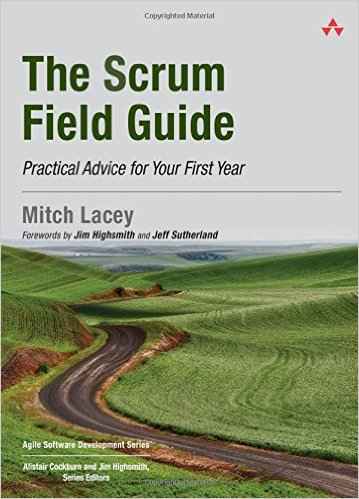
Getting started as a Scrum Master isn’t easy. Lacey’s book shows how to navigate your first year in the profession. It’s a highly rated overview of fundamental practices such as how to design and run a sprint session. The Field Guide also covers related business skills such as how to approach and manage contracts, a key factor if you ship products to external customers. The book covers the technical details of agile and managing cultural change.
Key Insight: Scrum practices can be adjusted in some places to suit your environment but be wary of cherry picking a few practices at random.
3. Essential Scrum: A Practical Guide to the Most Popular Agile Process by Kenneth S. Rubin
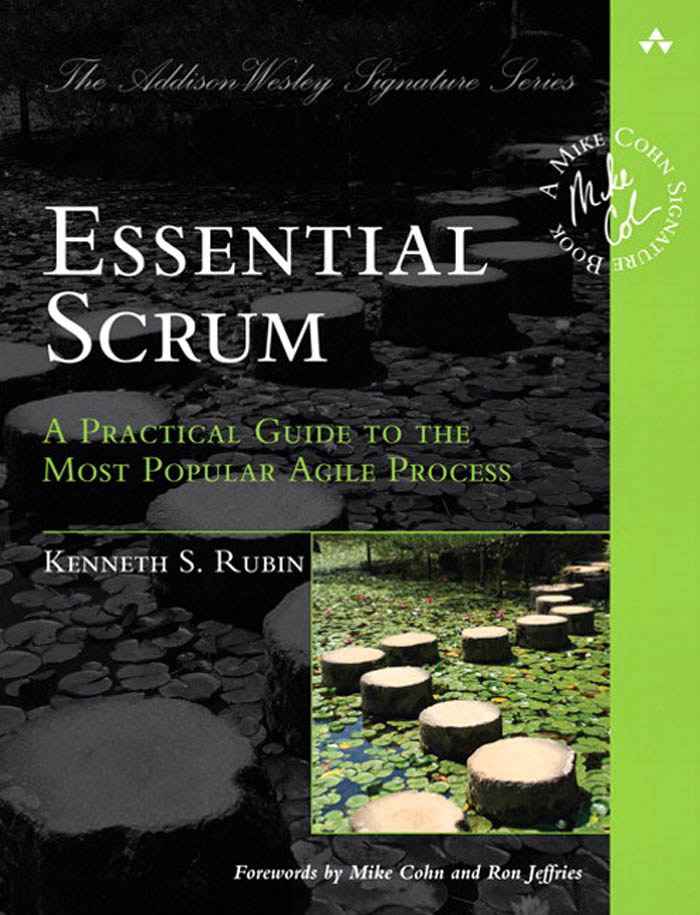
With more than two hundred positive Amazon reviews, “Essential Scrum” is clearly a popular resource for those seeking the fundamentals. The book puts the Scrum Master role into context by explaining the other team roles (e.g. the Product Owner and other managers). There is also extensive coverage on the Scrum approach to planning and sprinting. Those new to the Scrum will find the book’s detailed glossary especially helpful.
Key Insight: Find out how to apply scrum and agile practices when you face the challenge of managing technical debt.
4. Scrum: The Art of Doing Twice the Work in Half the Time by Jeff Sutherland
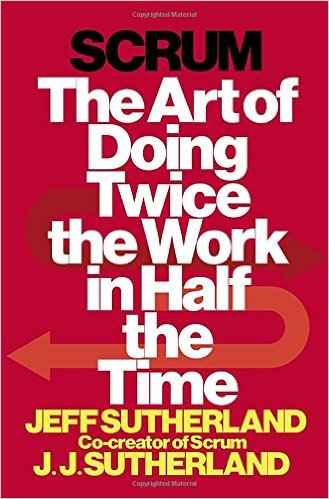
How do you “pitch” scrum practices to managers and leaders in your organization? Sutherland’s book addresses scrum from a management standpoint and shows its value. If you’re looking for inspiration to help you lead your teams and a refresher on first principles like the 80/20 principle, this is the book for you. If you’re seeking detailed technical application and process, you may want to choose a different title from this list.
Key Insight: Selling scrum to managers and your team can be done at the level of inspiration and productivity improvement with Sutherland’s approach.
5. Scrum Shortcuts Without Cutting Corners: Agile Tactics, Tools & Tips by Ilan Goldstein
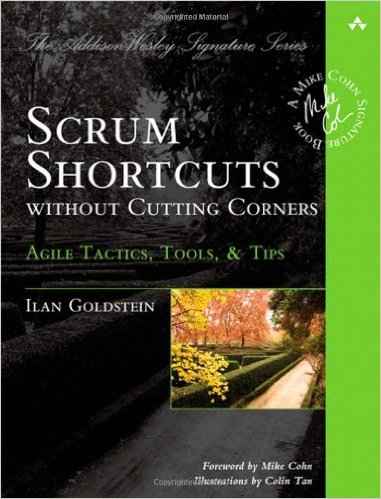
First principles provide ideas and inspiration when it comes to adopting scrum. What happens next after you acquire that foundational knowledge? You may need guidance in the area of practical tips and techniques. That’s where Goldstein’s book comes in. He provides actionable advice on using metrics, managing bugs and creating useful estimates. Professionals comment that they find it useful to keep the book in their cubicle as a reference.
Key Insight: Do you want to read about scrum with a dash of fun and humor? Goldstein shows it can be done in this book.
6. The Personal MBA: Master the Art of Business by Josh Kaufman
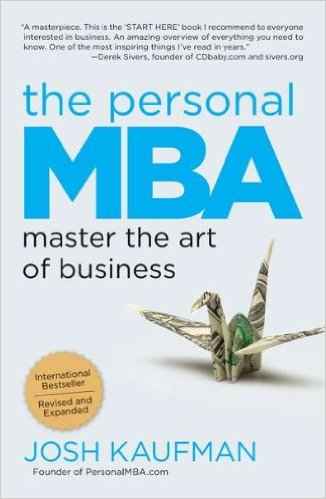
Many Scrum Masters come up through the ranks as engineers and developers. That experience yields strong technical skills and deep expertise. However, Scrum Masters may end up with knowledge gaps when it comes to other areas of business like sales, marketing, operations and psychology. Kaufman’s highly readable and systematic overview of business fundamentals will help to put your team’s work in a broader context.
Key Insight: Business skills are learnable and you don’t have to invest in a MBA degree to acquire these skills. Kaufman masterfully shows how all aspects of business are interconnected, a key fact to keep in mind as you create new processes and technology as a Scrum Master.
Tip: Kaufman is also known for curating his “99 best business books” resources which covers business creation, value creation, marketing, sales, finance, the human mind and other areas. It’s a great place to continue your reading journey.
7. Crucial Conversations Tools for Talking When Stakes Are High by Kerry Patterson, Joseph Grenny, Ron McMillan, and Al Switzler
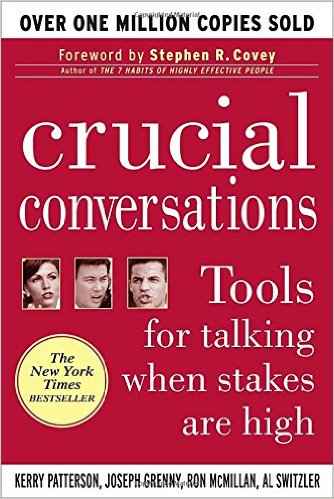
How should you start a conversation when you’re in conflict with someone? “Crucial Conversations” provides a tested model that shows you how to have that difficult chat with people on your team, vendors and other people. Even better, this book’s communication model has been proven to work in a variety of situations including divorce discussions.
A key principle for the book: “start with heart.” It’s easy for technical professionals like Scrum Masters to focus on the logical dynamics of a problem. However, that’s not always the right approach. “Crucial Conversations” also provides guidance on how to have effective discussions even when you’re stressed out or angry.
Key Insights: You don’t have to “wing out” with high stakes conversations. You can use a model to guide you through the process of connecting with others and getting your message across, even when tempers are running hot.
Share article